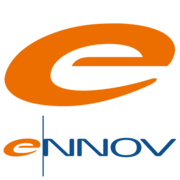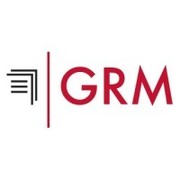Enterprise Content Management Software

Top Rated Products
(1-3 of 3)
All Products
(51-75 of 153)
Explore recently added products
Learn More About Enterprise Content Management Software
What is Enterprise Content Management (ECM) Software?
Enterprise Content Management (ECM) is a system for capturing, preserving, managing and delivering unstructured content and documents. ECM also secures content digitally in compliance with policy. ECM systems make these records retrievable and shareable. Content can be transferred with minimal risk to the content's security.
Enterprise content management systems ensure that users can easily access up to date documents. ECM systems also include version control features so that old versions of documents can be recovered as needed. Businesses use ECM systems to reduce organizational risk and ensure that users get the documents and information they need.
Enterprise content management software often includes Workflow Automation functionality, which allows businesses to automate and streamline their processes. It can benefit a business by reducing manual tasks, improving efficiency, enhancing collaboration, and enhancing the customer experience. The implementation of Workflow Automation functionality may vary across different products. Some products offer a no-code, drag-and-drop interface that allows users to easily create and customize workflows without the need for programming or scripting. Other products may provide more advanced features, such as conditional branch logic and the ability to chain multiple workflows together to create complex decision trees.
ECM Software Features & Capabilities
- Capture, Imaging: The ECM system supports the digitization of content.
- File Sync, Storage, Archiving: Foundational to the ECM system is its storage system for long-term preservation & retention of content in an organized fashion.
- Document Management: Beyond capture, ECM systems support sharing, distributing, printing, faxing, etc.
- Records Management: Secure, policy-controlled and compliant storage, retrieval and production of records, transactional or otherwise.
- Search & Retrieval: Helps users find the content they are looking for. Various methods for assistance include filters, tags, metadata, and the like.
- Collaboration: ECM systems support file and content sharing within the enterprise, or integrate with preferred collaboration software or modules.
- Content Publishing & Creation: Some ECM systems also support the publishing of content to web pages.
- Security, Risk Management & Information Governance (IG): Security controls with rules, policies, and permissions defining and delimiting access to content and records. This is a core feature and a necessity for enterprises.
- Integrations: ECM systems have integrations with multiple 3rd-party systems such as electronic signature software, hardware (printers, scanners, etc.), digital asset management, Disaster Recovery solutions, CRM, ERP, and web content management systems (WCMS, or CMS).
ECM System Considerations
Enterprise Content Management (ECM) software is designed to facilitate lifecycle management, information governance (IG), and collaboration. Modern ECM systems should provide a single source of truth. Additionally, they should offer features for version control and synchronization, intuitive search, and discovery. It is also important for ECM software to integrate with other applications to deliver viewable content across multiple platforms.
The timely delivery of contracts and other transactional documents is also an important component of business process management (BPM). This is a secondary goal of ECM software. Security and optimized business processes are built into a successful ECM's content storage and retrieval systems.
Pricing Information
Enterprise content management systems may have a one-time/ annual license fee that can start in the $2,000-$3,000 range. Alternatively, they might offer a monthly subscription fee that is per user per month. The subscription fees start at $15-$20/month/user and increase proportionally with the size of the company. Certain ECM vendors also offer a free trial.
However, many ECM vendors do not openly disclose their prices but will provide a quote upon request.
Related Categories
Frequently Asked Questions
Why do organizations use enterprise content management software?
Enterprise content management (ECM) systems allow organizations to capture, store, and manage documents and make them accessible to end-users. Types of files that can be stored and retrieved digitally include:
- Word
- Excel
- PowerPoint
- PDF files
- HTML files
- scanned images
More recently, ECM software has evolved to capture other types of files as well, including video and audio recordings and social media posts.
What are the benefits of using an enterprise content management system?
There are a few key benefits that come along with using ECM software. If your organization currently keeps track of important information using paper documents and filing cabinets, you should consider the following benefits of moving to an ECM system:
- Greater security from not needing to rely on paper records
- Secure document storage in compliance with your organization’s policies
- Being able to store documents digitally rather than needing physical storage space
- Having a centralized location for all your important documents
- Ability to access documents from any location within the company network
- Ease of file sharing and collaboration across the business
- Ability to automate document/content capture, publishing, and archiving processes
What are the top enterprise content management systems?
According to end-user feedback on TrustRadius.com, top-rated enterprise content management software include:
For more information about other ECM products, including which products are most popular among different business sizes, view the Enterprise Content Management Software TrustMap on TrustRadius.com
How are enterprise content management systems and document management systems different?
Enterprise content management (ECM) systems are similar to document management systems (DMS) in many ways. For example, they both help manage files, provide a central repository for document storage, and perform document retrieval. However, there are a few key differences as well, including:
- ECMs can work with both structured and unstructured information, while DMSs work with structured document formats.
- ECMs tend to be more complex systems than DMS software, as they are designed to manage the flow of documents across enterprise organizations.
- Some ECMs also have content publishing capabilities, while DMSs are mainly used for creating, managing, storing, and retrieving documents.
- DMSs also focus more heavily on document metadata management and manipulation than ECMs typically do.
How much does enterprise content management software cost?
The cost of enterprise content management software varies depending on the type of software deployment (cloud-based vs. on-premise), number of users, and pricing model. Some products will have a one-time license fee, this can range between $2,000 - $4,000.
Cloud-based products are more likely to have monthly or annual subscription-based pricing instead. Prices can range from $5 to $50 per month per user.






































